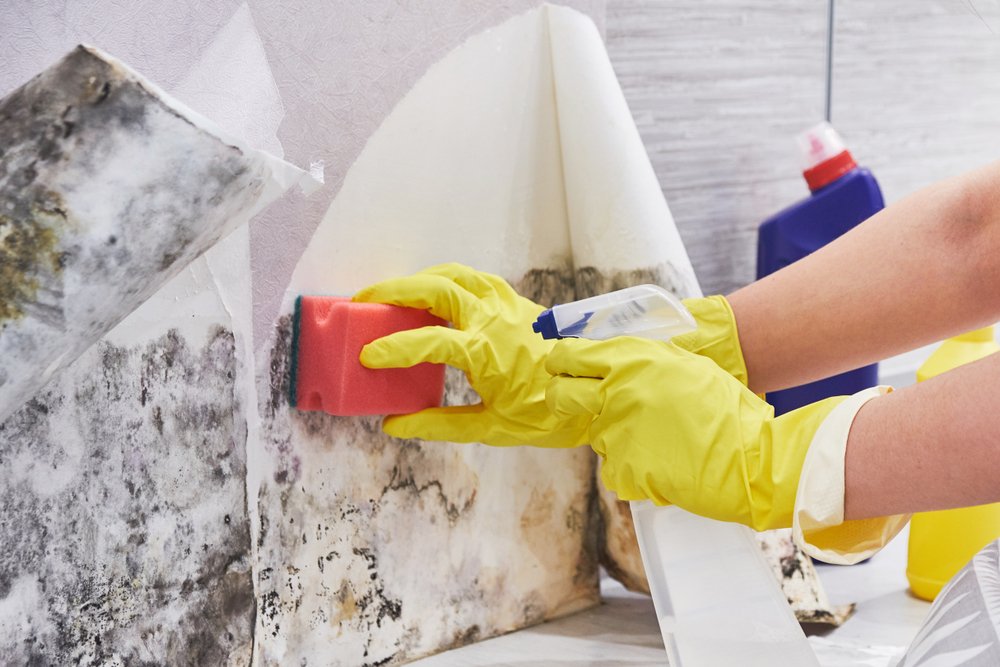Unfinished basements are an eyesore; they are often neglected when it comes to cleaning compared to the rest of your home.
There’s a reason for this! For those of us who use our basements mainly for laundry and storage, looks aren’t really important.
That is, except for when ugly and suspicious stains begin to appear on our basement walls.
If your interior concrete basement walls are in need of a good cleaning, you may be wondering the best way to do it.
Many people avoid interior concrete basement walls cleaning out of fear of the mess you’ll be left with just to get the job done. Well, worry no more!
Whether the walls are plagued with mold or mildew, or they’re just dusty and dirty, here are some steps you can take to ensure its taken care of once and for all.
Signs You Need To Clean Your Basement Walls
There are a few tell-tale signs that it might be time for you to clean your basement walls.
If you have ugly stains of any color on your walls or have noticed undetermined substances that are starting to peel, flake, fall, or ooze off of the walls, you may be wondering if this could be a sign of other major problems.
When basement wall-stains appear, many homeowners immediately begin to worry about mold and the implications it can have on their indoor air quality and health.
While not every basement wall stain is mold, all of them do have the same source and happen for the same reason as mold – water intrusion.
Water intrusion is caused when groundwater consistently infiltrates the porous concrete walls through capillary action.
Steps To Cleaning Your Basement Walls
By following these steps, you can be sure your basement walls are free on nasty stains or mold.
Provide Adequate Drainage
The first step to correct any type of basement wall stain problem is to provide adequate foundation drainage in order to minimize the water infiltration.
Unless you take every step to keep the soil surrounding the walls as dry as possible, those ugly stains will just keep coming back.
Control Humidity
Mold and stains often build-up due to humidity.
Since your basement is underground, it collects moisture more quickly than the rest of your home.
By controlling the humidity in your basement, you can avoid wall stains and prevent mold growth.
Consider using a dehumidifier in your basement, especially if you use it to wash laundry.
Identify The Stains
The stains on your basement walls may be caused by different things. Depending on a variety of different factors, including how old your home is, where it is located, and how it was built.
There are a few different types of stains you may find on your basement walls.
- Reddish-Orange Stains

If you notice your basement wall-stains are a reddish-orange color, you may have rust.
While not detrimental to human health, it can lead to many problems in your drainage systems by building up in pipes and drains and causing them to clog and fail.
- Dark Stains

Dark black or grayish stains on the wall are a sign of mold.
Mold removal is a bit trickier than mold prevention, and if the area infested is larger than 10 square feet you should not attempt to do it on your own without professional help.
Call A Professional
If you notice rust or mold stains on your basement wall, it may be best to leave it to a professional.
While it may be tempting to try and DIY, it is important to remember that basement wall-stains are often symptoms of a more significant problem.
With an in-depth basement wall cleaning by a trusted team of professionals, your basement walls will be rid of dirt, mold, and stains in no time.
The highly trained experts at Dry-Tek Environmental have years of experience working with dirty concrete basement walls just like yours.
We offer a full range of basement wall cleaning services to ensure your basement is not only looking great, but is safe for you and your loved ones.
For more information on basement wall cleaning or to get started today, contact the trusted professionals at Dry-Tek Environmental.


